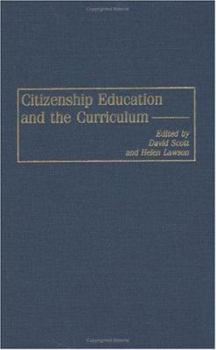Citizenship Education and the Curriculum
Citizenship education is a current concern of policymakers in various parts of the world. Debates focus on modern notions of citizenship, and the need for citizenship education in a rapidly changing world. This need for citizenship education and corresponding definitions have changed over time, but a persistent characteristic would seem to be a fear of indoctrination and a lack of a coherent vision due in part to the notion of citizenship being a contested concept. Different notions of citizenship in turn underpin different theories of citizenship education, and a number of commentators have examined its role and rationale at various points in time and identified ideal forms of pedagogy, values, skills, curricular content, and assessment.
Contributors address the following concerns: universality and equal opportunity, social literacy and citizenship, citizenship education and curriculum, race, different citizenship patterns in civic education, assessment, cultivating respect in human relations, and global citizenship education. Adopting a comparative approach discussing citizenship education in New Zealand, England, Iceland, Israel, Ireland, and Europe, the book presents various debates and develops new frameworks for understanding the issues.Format:Hardcover
Language:English
ISBN:1567506518
ISBN13:9781567506518
Release Date:August 2002
Publisher:Praeger
Length:200 Pages
Weight:0.98 lbs.
Dimensions:0.8" x 6.0" x 10.1"
Customer Reviews
0 rating





